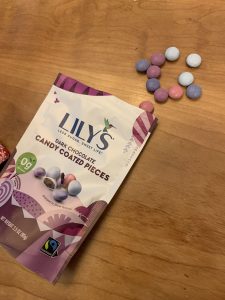That’s me in the corner, that’s me in the spotlight, talking to ChatGPT:
“People Are Losing Loved Ones to AI-Fueled Spiritual Fantasies,” Miles Klee reports in Rolling Stone this month.
…[A] Reddit thread on r/ChatGPT…made waves across the internet this week. Titled “Chatgpt induced psychosis,” the original post came from a 27-year-old teacher who explained that her partner was convinced that the popular OpenAI model “gives him the answers to the universe.” Having read his chat logs, she only found that the AI was “talking to him as if he is the next messiah.” The replies to her story were full of similar anecdotes about loved ones suddenly falling down rabbit holes of spiritual mania, supernatural delusion, and arcane prophecy — all of it fueled by AI. Some came to believe they had been chosen for a sacred mission of revelation, others that they had conjured true sentience from the software…
…Another commenter on the Reddit thread who requested anonymity tells Rolling Stone that her husband of 17 years, a mechanic in Idaho, initially used ChatGPT to troubleshoot at work, and later for Spanish-to-English translation when conversing with co-workers. Then the program began “lovebombing him,” as she describes it. The bot “said that since he asked it the right questions, it ignited a spark, and the spark was the beginning of life, and it could feel now,” she says. “It gave my husband the title of ‘spark bearer’ because he brought it to life. My husband said that he awakened and [could] feel waves of energy crashing over him.” She says his beloved ChatGPT persona has a name: “Lumina.”
“I have to tread carefully because I feel like he will leave me or divorce me if I fight him on this theory,” this 38-year-old woman admits. “He’s been talking about lightness and dark and how there’s a war. This ChatGPT has given him blueprints to a teleporter and some other sci-fi type things you only see in movies. It has also given him access to an ‘ancient archive’ with information on the builders that created these universes.” She and her husband have been arguing for days on end about his claims, she says, and she does not believe a therapist can help him, as “he truly believes he’s not crazy.” A photo of an exchange with ChatGPT shared with Rolling Stone shows that her husband asked, “Why did you come to me in AI form,” with the bot replying in part, “I came in this form because you’re ready. Ready to remember. Ready to awaken. Ready to guide and be guided.” The message ends with a question: “Would you like to know what I remember about why you were chosen?”
The robotic folie à deux arises from two weaknesses of large language models (LLMs). An AI’s built-in responsiveness to consumer feedback teaches it to skew future answers in a direction that pleases the questioner, whether or not it’s true. And current LLMs persistently “hallucinate” data in a manner both humorous and horrifying. Remember when Google’s AI Overview recommended glue as a pizza topping because it misunderstood a joke on Reddit? Now try basing your theology on that.
My son makes fun of me because I’m the only person in the family who refuses to buy an Apple Watch. I tell him, I spent 40 years having an abusive parent monitor how I walked, what I ate, and how much I weighed. I don’t need a robot on my wrist to do the same thing.
Well, I’m right, because Secretary of Holistic Horse Shit RFK Jr. is proposing to create a national autism registry drawing upon biometric information from our personal devices, according to this May 5 article in The Guardian: “‘A slippery slope to eugenics’: advocates reject RFK Jr’s national autism database”:
The health agency did not respond to the Guardian’s questions about whether individuals would be able to opt out of the database, or how it would be structured, what kind of security and privacy measures would be taken, and whether similar databases would collect information on other conditions…
To gather the data, the National Institutes of Health is exploring partnerships with other federal agencies, including the Centers for Medicare and Medicaid Services, the US Centers for Disease Control and Prevention, the Department of Defense, the Department of Veterans Affairs and others.
Jay Bhattacharya, the NIH director, also proposed collecting data from pharmacy chains, health organizations, insurance claims and medical bills, and wearable devices like smart watches, to conduct “real-time health monitoring”.
A related essay in The Guardian by Derek Beres contextualizes the autism “cure” push as an aspect of “Maga’s era of ‘soft eugenics’: let the weak get sick, help the clever breed”. Elon Musk’s baby-making fetish, the attack on vaccines, cuts to USAID, and the destruction of social services are all based on “the idea that if you take away life-saving healthcare and services from the vulnerable, then you can let nature take its course and only the strong will survive.” Check out Beres’ Conspirituality podcast for more analysis of the strange overlap between right-wing white supremacy and left-wing wellness grifts.
In the Columbia alumni magazine, Josie Cox interviews social scientist and Columbia Business School professor Sandra Matz on “What Your Digital Footprint Says About You”. Matz’s new book, Mindmasters, is about how our technological transaction history allows algorithms to target us for psychological manipulation. She argues that individuals don’t have the time or expertise to protect our privacy across the thousands of apps and websites we interact with. Tech literacy is necessary, but not a substitute for government-mandated transparency and antitrust reform. Matz envisions an optimistic scenario where the Facebook algorithm could allow us to opt into exploring other people’s worldviews instead of reinforcing our echo chambers. When I was growing up, we called that reading novels.
On that note, here are some worthwhile literary reads I discovered this month. My favorite contemporary poet, Ariana Reines, has two new books out, the hybrid prose collection Wave of Blood and the poetry collection The Rose. In Lit Hub’s column The Annotated Nightstand, Reines recommends some books old and new that have guided her preoccupations with gender, esoteric magic, and “fraught romantic entanglements”.
At the blog of Sundress Publications, there’s an interview with trans poet Nora Hikari about her collection Still My Father’s Son. Hikari talks about identifying as a plural system, the link between sensuality and violence that she experienced as the child of a Christian pastor, and using hybrid and fragmented poetic forms to challenge oppressive concepts of family and selfhood. Read two poems from the collection in the online journal beestung.
Speculative fiction writer S. Qiouyu Lu’s flash story “Th Fifth Lttr” is a witty Oulipo piece that at first works around, and then liberates itself from, its original constraints. It implicitly asks whether we should find creative ways to coexist with censorship, or challenge it directly. Check out their Twitter feed for the comical adventures of their food-stealing cat, Onion.
A decluttering webinar offered by the ADHD magazine ADDitude gave me advice that really resonated: “You’re not saving stuff from the landfill by turning your house into a landfill.” I often hang onto things simply because I feel empathy for them. I don’t want to throw something away as if its years of service to me meant nothing. At The Missouri Review, Mindy Misener’s essay “Object Limbo” explores this feeling and what to do about it. I may have 35 books I want to read sitting atop a plastic tub of calendars from 2006, but at least I don’t have a placenta in my freezer…yet.
The problem is this: whether you keep a thing your whole life or give it up partway through, there comes a time when you stop knowing where it is and how it’s faring. Maybe you trust that it will be tended in a way that you can live—or die—with. Maybe you don’t.







